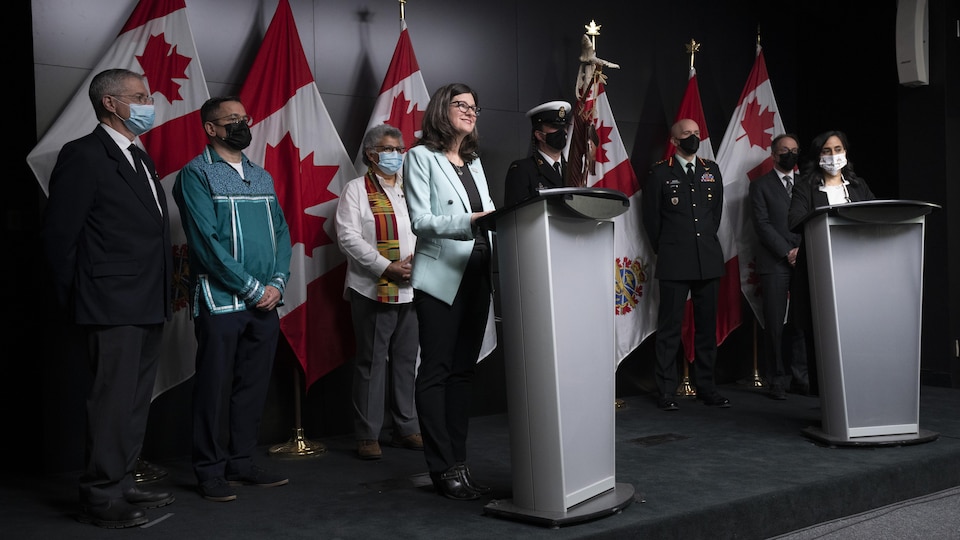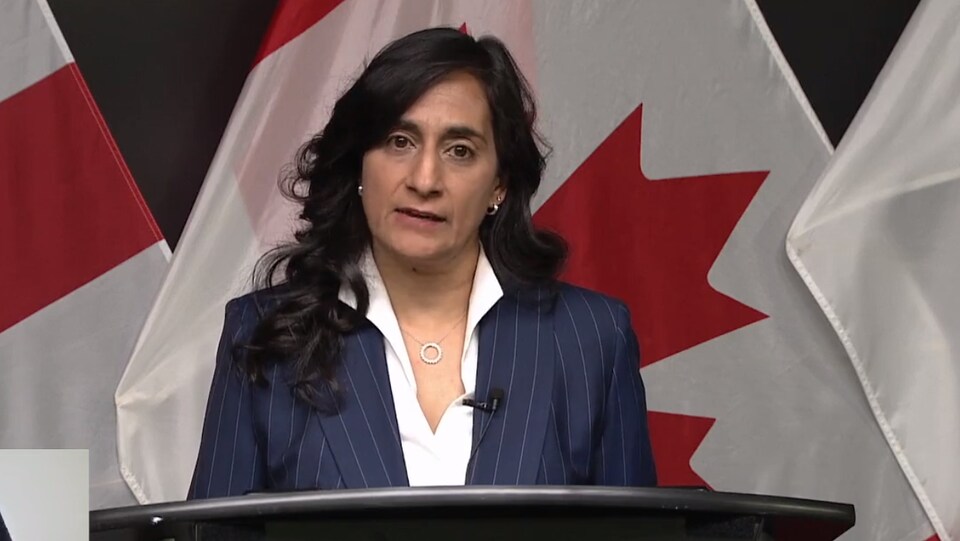An Indigenous representative is part of the advisory group of four former service members who for a year have examined problems of discrimination and racism within the Canadian Armed Forces (CAF). He recounted how his personal experience came to change the course of his career.
At the press conference in conjunction with the release of the report, former Mohawk Sergeant Derek Aronhia: Nens Montour recounted his training period with the Canadian Armed Forces. It quickly disappeared, to the point where he enlisted in the Marines in the United States.
I have always been interested in the military, says this Kahnawake native south of Montreal. He began his training as an infantryman in the Royal Montreal Regiment in 1989. He was therefore in training with the Canadian Armed Forces during the Oka crisis the following year.
” I heard members of my unit say “hopefully send us there to kill these beasts”. It changed my perspective on racism and discrimination and led me to enlist in the Marine Corps in the United States. “
This testimony is consistent with that received during the work of the Department of National Defense’s advisory team on systematic racism and discrimination, resulting in a toxic environment in military and civilian workplaces.
If this toxicity is not quickly controlled and eliminated, its effects will last for years and damage the Defense Team’s reputation to the point of driving Canadians to join its workforce. Recruitment data suggests that this is already the casemention the four authors of the report, including Mr. Montour.
Although demographically, Aboriginal people are younger than the average in Canada, they lack military representation. They have a total of 3.8% of the workforce in the Canadian Armed Forces and 3.4% in the Department of National Defense, while they represent 4.9% of the Canadian population.
” Programs for Indigenous Peoples almost seem like an effort to bring them so that they can be integrated into the traditional military mold without further consideration for their cultural diversity. “
95% white officers
Indigenous soldiers also had little chance of obtaining officer positions, which were taken by white people in 95% or more of cases. In Canada, this situation is not specific to the army, but nevertheless is more dazzling there than in many sectors.
National Defense Minister Anita Anand said she was determined to make every effort to make the armed forces and her ministry as an inclusive place.
” I know what it feels like to be a racialized woman in a large organization and face discrimination and systemic racism. “
In particular, he promised to set up an action plan to implement the report’s 13 recommendations.
Of these, the third relates only to the natives. It recommends in particular to start discussion about land seized for the development of military installations and to examine problematic military references (unit flags, commemorative coins, etc.). only expressing a colonialist view.
The high native becomes commander
In the next action plan, specific parameters will be put in place and regularly monitored, to make the army a place where there is no discrimination, Minister Anand promised. The advisory group actually stressed the impossibility of getting accurate answers in the implementation of the 258 recommendations that have been recommended for 20 years.
The Department of Defense and Canadian Armed Forces Ombudsman’s Office conducted its own study on the efforts of FCC to increase diversity within it and publish its findings in early May. That’s the result not pretty look according to ombudsman office spokesman Andrew Bernardo.
According to Minister Anand, there is the will for change, even if the problems are not solved overnight. Last week, the Department of National Defense announced that Lieutenant-General Jocelyn Paul, a member of the Huron-Wendat First Nation, will lead the Canadian Army this summer. He is from Wendake.
However, the latter is not available for interviews, a spokesman for FCC.
Source: Radio-Canada

